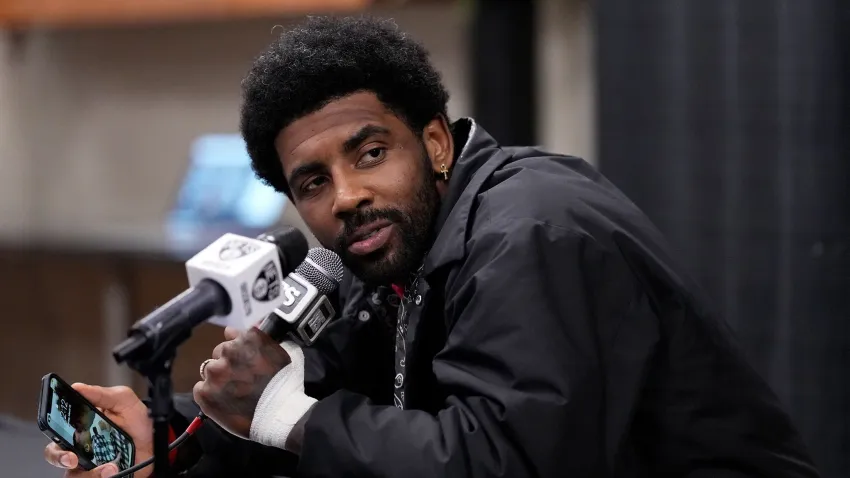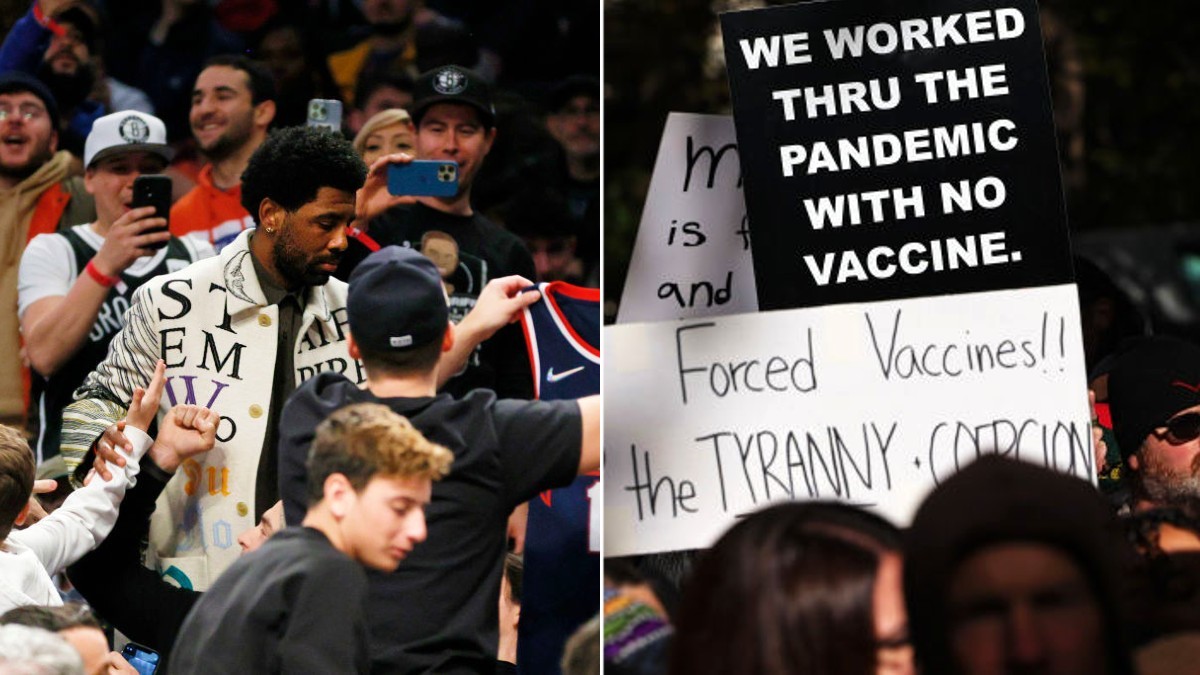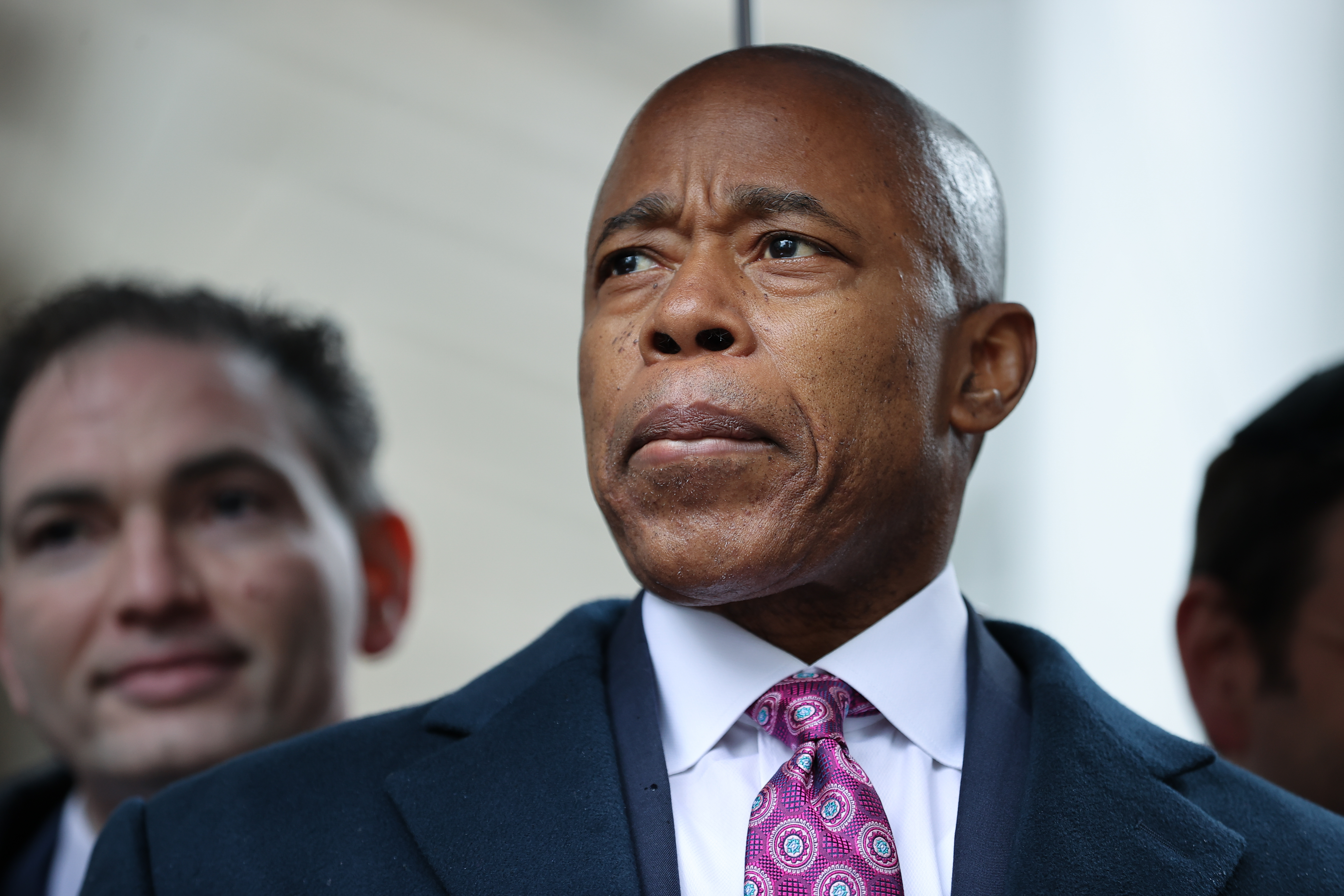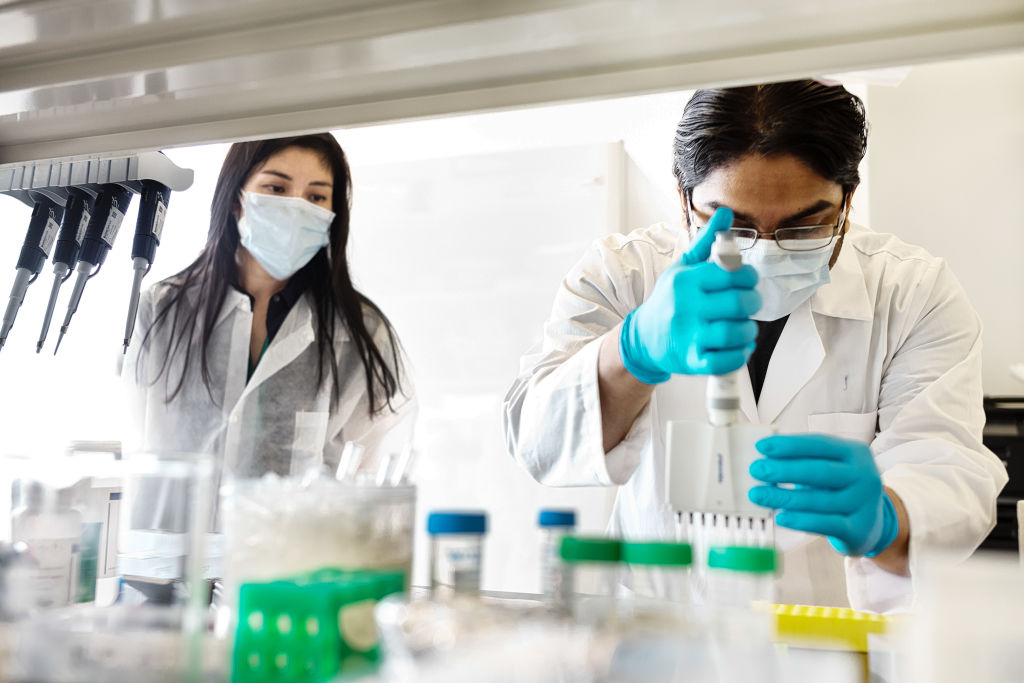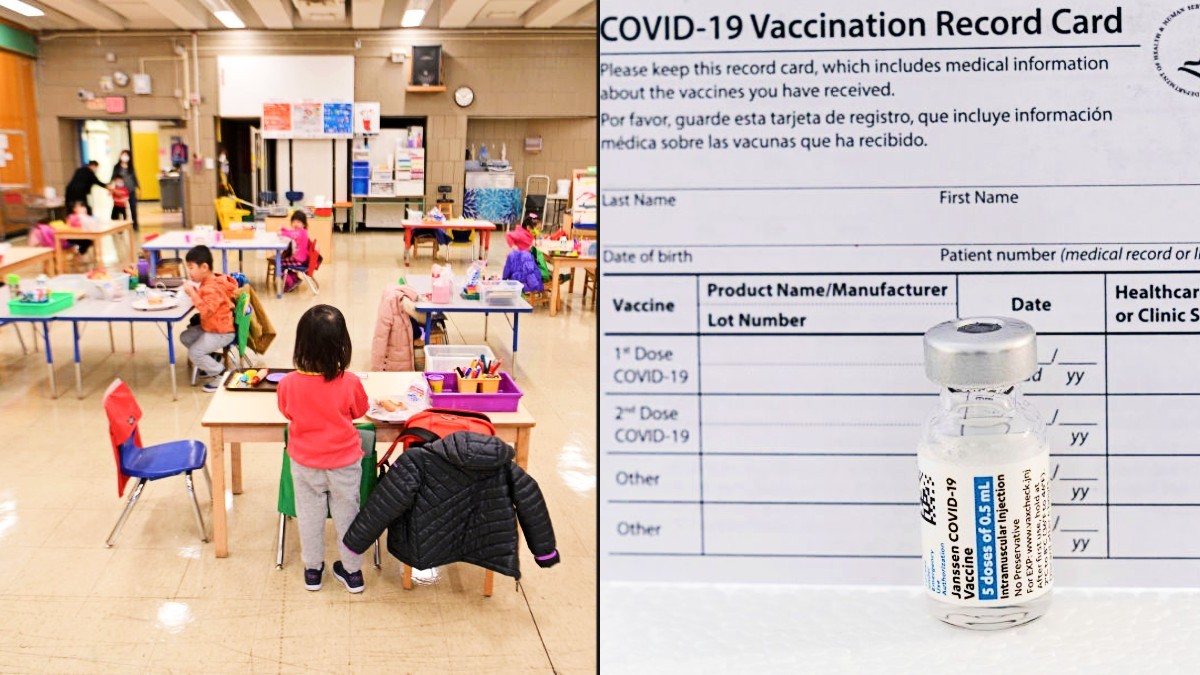Mayor Eric Adams defended his controversial vaccine carve-out for athletes and performers Friday, one day after he amended the mandate requiring all employees in New York be vaccinated. NBC New York’s Andrew Siff reports.
What to Know
- Mayor Eric Adams signed an order exempting NYC-based performers from the private sector vaccine mandate while leaving the rule intact for the vast majority of private employees citywide
- Reports of the plan drew immediate backlash, with many calling it unfair that NYC workers remain suspended without pay while millionaire pros and entertainers may be about to get a pass
- Given the widespread protests and sick calls over the mandate when Adams' predecessor introduced it in late December, his anticipated move begs the question of whether disruptions could happen again
New York City Mayor Eric Adams doubled down on his controversial decision to lift the city's vaccine mandate for professional athletes and performers, but not city workers, insisting that it doesn't set up a dangerous double standard as critics have said.
Facing full-court pressure, Adams on Friday emphasized that he was simply closing a loophole from the last administration, which prevented hometown athletes from playing home games if they weren't vaccinated — but allowed unvaccinated visiting players to still participate.
Watch NBC 4 free wherever you are
He called it a matter of leveling the playing field, even if some weren't buying it. Many have said Adams' order does the exact opposite, favoring millionaires over the general public that elected him.
Get Tri-state area news delivered to your inbox with NBC New York's News Headlines newsletter.
"You may consider this a double standard. I consider it an analysis that I made and I'm comfortable with my decision," Adams said at a press conference.
The executive order that exempts New York City-based professional athletes and performers from the private sector COVID vaccine mandate means that Brooklyn Nets star Kyrie Irving, who has been outspoken about his decision to not get vaccinated, will be able to take the floor in at the Barclays Center on Sunday.
Across the street from the arena, a manager at SNIPES Shoes — where Irving's sneaker is a hot seller — was not happy with the new arrangement.
"I don't like it. It's a double standard and poor people get the end of it," the manager said.
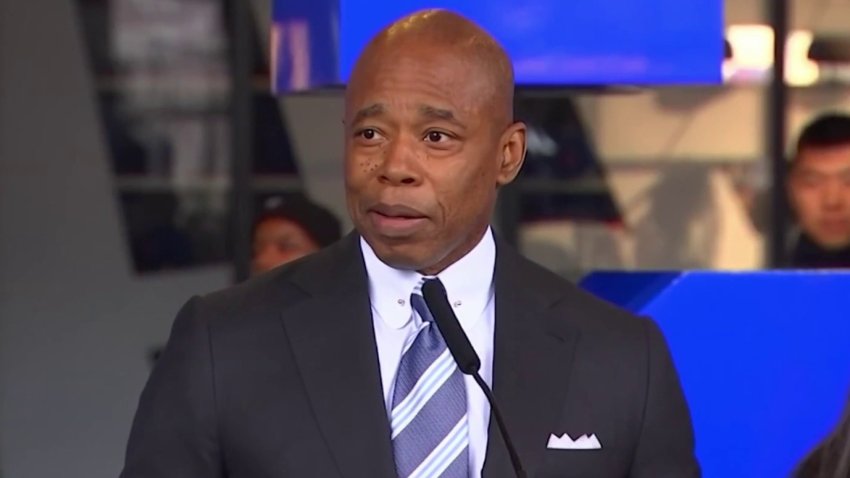
News of Adams' intentions drew swift backlash, with many calling it unfair that city workers, many of whom worked through the pandemic when there was no vaccine available, remain suspended without pay for refusing the doses while millionaire performers get a pass.
The city's teachers union told NBC New York that "If the rules are going to be suspended, particularly for people with influence, then the UFT and other city unions are ready to discuss how exceptions could be applied to city workers."
"This is a step away from following sensible public health-driven policies that prioritize equity,” said City Council Speaker Adrienne Adams, who is not related to the mayor.
In response to her comments, the mayor said that "there are things the City Council speaker will do that I will disagree with, but she has a role in city council, I have a role as mayor."
The city suspended numerous public employees -- about 1,500 of them -- for refusing to get vaccinated, including public servants like firefighters and sanitation workers. All employers are supposed to bar unvaccinated workers from being in shared workplaces. Adams said Thursday he has no plans now to rehire them.
“There can’t be one system for the elite and another for the essential workers of our city," said Harry Nespoli, chair of the Municipal Labor Committee, an umbrella group of unions that together represent about 350,000 city workers.
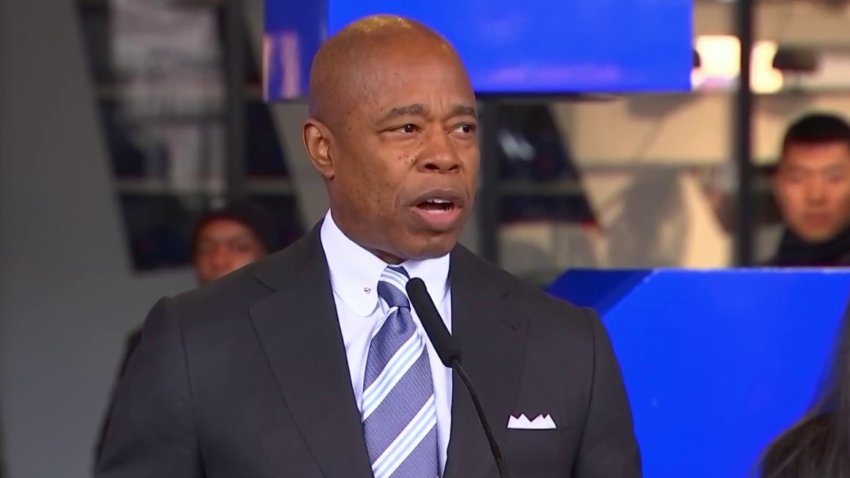
Adams declared his a "tough" decision done as one of economic necessity and in the best interest of New York's recovery from the pandemic. Adams has seemed prepared for the controversy that began to brew Wednesday.
"I'm mayor of the city and I"m going to make some tough choices. People are not going to agree with some of them," Adams said Thursday. "I was not elected to follow. I was not elected to be fearful but to be fearless. I must move this city forward."
"I'm not making this decision loosely or haphazardly," Adams said. "The city has to function. Some will boo us, others will cheer us -- that is not only a game of baseball but that's the game of life and we have to be on the field in order to win."
Adding NYC-based performers, including outspoken unvaccinated ones like Irving, who has had to remain on the sidelines at home while playing away, to the exempt list is an equalizer, the mayor insisted, and economic booster.
"By putting our home teams on an equal playing field we increase their chances of winning and that has a real impact on this city. It's not just fans in the stands, it's fans in the stores," Adams said Thursday, arguing each home playoff game is worth millions in impact. "These are real dollars and they play a major role."
The amended exemption to the private sector vaccine mandate is effective immediately. In addition to Irving being allowed to play this weekend, the change allows any unvaccinated Met to take the home field on Opening Day next week. The Yankees will be able to do the same after their away series to open the season.
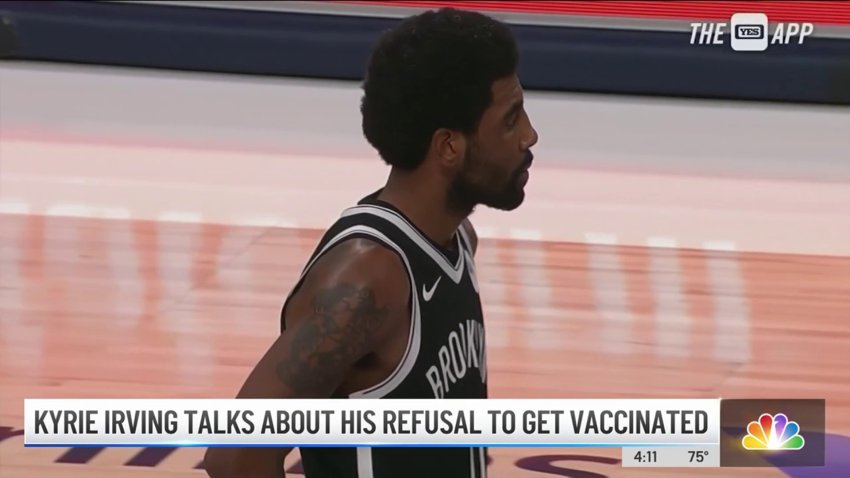
Adams said the change only applies to a "small number" of people, since most have complied with the vaccine mandate. He didn't say how many -- and he sought to make it clear he believes vaccination is the right course for everyone, including Irving.
Adams has reiterated his "peel-back-the-layers" approach to COVID restrictions, citing this latest announcement as another layer in the process. Many are outraged.
What about the janitors and ushers who serve Barclays Center, some have asked. What about the NYPD and FDNY, which had among the lowest vaccination rates citywide before the initial rollout of the mandate, leading to protests and sickouts? And what about the average private worker who has been suspended without pay?
Asked just days ago, Adams said he had no plans to reevaluate the private-sector mandate just yet, calling the workplace an "important environment." He said he was following the science and that baseball and basketball "would have to wait."
Called out about that Thursday, the mayor said, "Two days is still a wait." He also said he had wanted to change the rule when he first took office but his medical team advised against it, given skyrocketing omicron infections across the country.
More Coverage
The creation of special exemptions for athletes or entertainers could potentially lead to court challenges arguing the city isn't applying the law evenly.
And given the widespread protests and sick calls over former Mayor Bill de Blasio's introduction of the vaccine mandate in late December, Adams' anticipated move brings up the question of whether such disruptions could happen again.
